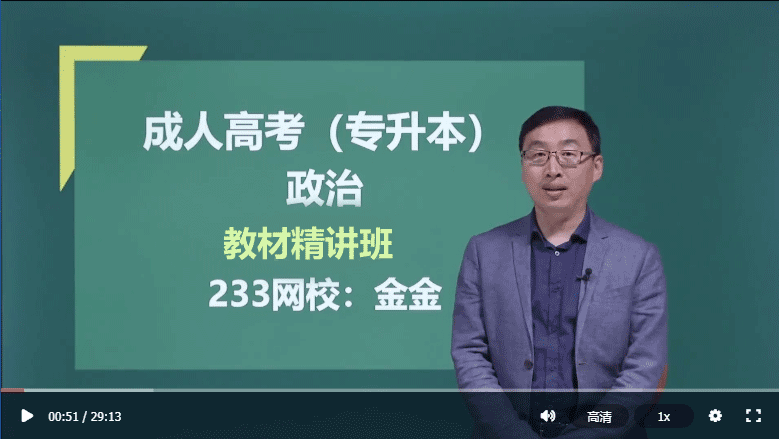цшфИхцЌшБшЏшЏцБфИшЏцГщЈхфЙ
уу6. English ________ in a new way at my college in the past few years.
ууA. has been teaching B. was being taught
ууC. has been taught D. had been taught
ууin the past few years шПх хЙДучАхЈхЎццЖ
уучцЁ C
уу7. All the machines _______ next month.
ууA. will be repaired B. will repair
ууC. will have repaired D. will have repair
уушЂЋхЈшЏцхП фИхЏхАчцЖчГЛхЈшЏbe
уучцЁ A
уу8. The rooms were then empty and most of them _______.
ууA. have shut up B. had shut up
ууC. have been shut up D. had been shut up
уучцЁ D
уу9. When they had finished playingяМ the children were made _______ all the toys they had taken out.
ууA. put away B. to put away
ууC. putting away D. be put away
ууput away хАцчЉцЖшЕЗцЅяМцОх ЅчЎБхццНхБ
уучцЁ B
уухцхЅхщІх шІхЄцфИЛшЏшНфИшНххКшАшЏчхЈфНяМхІцфИшНххКхЈфНяМхАБщцЉшЂЋхЈшЏцяМчЖххшшфИхчцЖцу
ууфКуц цхЈшЏ
ууц цхЈшЏцcanяМ couldяМ mayяМ mightяМ mustяМ shouldяМ ought toяМ needяМ dareяМ had betterяМ would rather чуц цхЈшЏчИхНфКхЉхЈшЏяМфИшНхчЌфНПчЈяМхП щЁЛхцЅхЈшЏххуought to цДфИЊчИхНфКц цхЈшЏяМхІхЎцЏхЈц цхЈшЏхх notяМфНцЏought toчхІхЎцЏought not to.
уу1.canяМ could
уушЁЈчЄКшНхух шЎИухЎЂшЇхЏшНцЇу
ууShe is only fourяМ but she can read.
ууIs there anything that I can do for youяМ
ууThis sort of thing can't go on.
ууI couldn't follow her speech.
ууCould you lend me your bikeяМ
ууFire can't destroy gold.чщфИцчЋчЛ
уу2.mayяМ might
уушЁЈчЄКх шЎИучцЕу
ууThe dialect of one province may be quite different from that of the next one.
ууStudents may not stay out after midnight without written permission.яМstay out хЈхЄшОЙхО чхОцяМ
ууHe asked his mother if he might go out to play.
уутMay I open the windowяМт тYesяМ please./ Please don't./ NoяМ you mustn't.т яМmay хІцшІхІхЎчЈmustn'tяМcouldхmightчЈхЈчАхЈцЖшЁЈхЇхЉчшЏДцГяМ
уу3.must
уушЁЈчЄКтшЏхЎтутхцЏтяМшПхЏфЛЅшЁЈчЄКтхП щЁЛтяМфИhave to цццЅшПяМфНmust фОЇщшЏДцфИЛшЇчцГяМhave to хМКшАхЎЂшЇщшІуmustцЖфИЛшЇшЁЈшООцЙхМяМhave toцЏхЎЂшЇшЁЈшООцЙхМуmustn't шЁЈчЄКтхфИфИшІтутфИхЎфИшІту
ууIf you must goяМ at least you wait till the rain is over.
ууTeachers always tell us we must do everything step by step.
ууттMust I go tomorrowяМ
ууттNoяМ you needn't.яМYesяМ I'm afraid so. mustфИшЌчщЎхЅчхІхЎчЈneedn'tцЅхчяМ
ууHe has to tidy up the room everyday.яМtidy up ццЋхЙВхяМ
ууяМHe must tidy up the room everyday.яМ
ууWe have to study a foreign language.
ууYou mustn't talk like that to your parents.
уу4.ought to яМ should
уушЁЈчЄКхКшЏЅхчфКхщхИИхЏшНчфКу
ууYou ought to go to see a doctor for you don't look well.
ууYou shouldn't talk like that.
ууThe old man said you ought to tell the police.
ууYou oughtn't to smoke so much everyday.
ууThe work ought to be finished by next Friday.
ууThe book should be available in the bookstore. яМavailable хЏхОхАчяМ
уу5.need
уушЁЈчЄКтщшІтуneedхЏфЛЅхНц цхЈшЏяМфЙхЏфЛЅххЎфЙхЈшЏу
ууNeed I comeяМ-YesяМ you must.яМNoяМ you needn'tяМ
ууAll you need do is to say yes to his questions.
ууHe said he needn't hurry.
ууneed шПхЏфЛЅфНхЎфЙхЈшЏяМхщЂцЅхЈхшЏцЖчИхНфКшЂЋхЈчЛцу
ууYou don't need to stay.яМ=You needn't say. яМ
ууDoes he need to know itяМяМ= Need he know itяМяМ
ууneeds/ wants/ requires +doingчИхНфКшЂЋхЈшЏцу
ууThe question needs/ wants/ requires discussing.яМ=needs to be discussed.яМ
ууMy shoes need repairing.яМMy shoes need to be repaired.яМ
уучЉфНфИЛшЏцЖneedцЅdoingшЁЈшЂЋхЈу
уу6.dare
уушЁЈчЄКтцЂтяМфЙхЏфЛЅфНхЎфЙхЈшЏяМфИЛшІчЈфКхІхЎхЅучщЎхЅу
ууThe boss is so hot-tempered that no one dare tell him the bad news.яМsoтІтІthat хІцЄтІтІфЛЅшГфКяМ
ууWho dare stop youяМ
ууHe doesn't dare to look out of the window.
ууц цхЈшЏцВЁцфККчЇАцЇцАчххяМцфККчЇАцЇцАххчфИхЎцЏхЎфЙхЈшЏу
ууShe dare not say what she thinks.яМ=She doesn't dare to say what she thinks.яМ
уу7.had better
уушЁЈчЄКттухІхЎфИК had better not
ууI had better not disturb him.
ууWe had better go and see the doctor now.
уу8.would rather
уушЁЈчЄКтхЎцПтяМхщЂцЅфЛхЅцЖяМфЛхЅчшАшЏчЈфИшЌшПхЛцЖухІхЎчЈwould rather not.
ууI'd rather not say anything.
ууJohn would rather work in a company than in a factory.
ууShe would rather have the small oranges than the large ones.
ууI would rather you came tomorrow.
ууяМwould sooner шПцЉяМхчхЎОшЏфЛхЅчЈшцшЏцАяМфИшЌшПхЛцЖуяМ
ууI would sooner she left the heavy end of the work to someone else.
ууцфКц цхЈшЏяМхІcanяМ couldяМ mayяМ mightяМ mustяМ ought toяМ should хщЂхЏфЛЅцЅхЈшЏчхЎцхНЂхМяМшЁЈчЄКхЏЙхЗВчЛхччфКччцЕцхЏЙхКшЏЅхччфКччцГу
ууThey shouldn't have left so soon.
ууThey must have been through a lot.
ууI needn't have told them that.
ууHe can't have left for Shanghai for I saw him a moment ago.
ууHow could you have forgotten such an important thingяМ
ууThey must have arrived by now.
ууYou oughtn't to have done that.
ууShe looks so miserable. You oughtn't to have hurt her feelings.
уутI was late yesterday because my car broke down. тяМbrokeчххцЏbreakяМшПщшЁЈцщчццяМ тYou should have borrowed mine. I wasn't using it. т
ууц цхЈшЏщЈхщЄфКхКфКшЇЃцЏфИЊшЏчх ЗфНхЋфЙфЙхЄяМц цхЈшЏчхІхЎцЏхЈхщЂх not.чЙхЋшІцГЈцhad betteхwould ratherчхІхЎуought toчхІхЎцЏought not to.would ratherхщЂцЅхЅххЊшНчЈфИшЌшПхЛцЖуcanуcouldуmayуmightуmustуought toуshouldхцЅхЈшЏхЎцхМшЁЈчЄКхЏЙшПхЛфКц ччцЕу
уутmay/might + чАхЈхЎццЖтшЁЈчЄКтфЙшЎИхЗВчЛтІтІфКтяМ
уутmust + чАхЈхЎццЖтшЁЈчЄКтшЏхЎтІтІфКтяМ
уутcan / could + чАхЈхЎццЖтшЁЈчЄКтцЌцЅцЏшНхЄтІтІчяМхЎщ фИцЊяМтяМ
уутshould/ought to + чАхЈхЎццЖтшЁЈчЄКтцЌхКшЏЅтІтІяМхЎщ фИцЊяМту
уу1.That was in March. You may / might have read about it in the newspapers.
уу2.The house is darkяМ the Browns _______ to bed.
ууA. may go B. should go C. should have gone D. must have gone
ууяМчцЁ DяМ
уу3.Her husband could have helped herяМ but he chose not to.яМchooseяМ
уу4.You _______ yesterday if you were really serious about the job.
ууA.ought to come B. ought come C. ought to have come D. ought have come
ууяМчцЁ C serious фИЅшчяМ
ууцЄхЄяМшчшПхКцГЈцneedхdareшПфИЄфИЊшЏяМхЎщЄфКцЏц цхЈшЏхЄяМшПхЏфЛЅцЏхЎфЙхЈшЏяМхЈфИхчц хЕфИчЈцГцхЗЎхЋ
уу1.To travel from England to Scotland you _______ a passport.
ууA. mustn't have B. haven't got C. don't need D. needn't
ууяМц цхЈшЏхшІцЅхЈшЏхх чцЁ CяМ
уу2.The house needs ________яМ but they plan to wait until next spring to do it.
ууA. paint B. to paint C. painting D. be painted
ууяМчцЁ CяМ
уу1. тDo you have to leaveяМт
уутSorry яМ but I really _____.т
ууA. have B. had to C. do so D. must
уучцЁ D
уу2. I want to go to the dentistяМ but you ________ with me.
ууA. needn't to go B. needn't go
ууC. don't need go D. need go
ууneen'tфИКц цхЈшЏяМхцЅхЈшЏхх
ууdon't needфИКхЎфЙхЈшЏяМхщЂцЅto
уучцЁ B
уу3. т______ you pass me the saltяМт
уутSure. Here you are .т
ууA. Might B. Must C. Could D. Need
уучцЁ C
уу4. тI haven't felt well for a week.т
уутYou ______ see a doctor.т
ууA. have ought ot B. had better
ууC. should have to D. would rather
уучцЁ B
уу5. тDoesn't Elaine want to see that movieяМт
уутYesяМ but she says _______ go tonight.т
ууA. she'll rather not B. she'd rather not
ууC. she'd not rather D. she won't rather
ууwould ratherчхІхЎшЏцОхЈratherчхщЂяМхЈшЏчхщЂу
уучцЁ B
уу6. тListenяМ Mary is singing in the next room.т
уутThat ______ be Mary. She's in hospital.т
ууA. may not B. shouldn't C. should have gone D. can't
уучцЁ D
уу7. John ______ a restless person. He kept moving from country to country.
ууA. must be B. should go C. must have been D. must have gone
уучцЁ C
уу8. I can't find Tom anywhere. I think he ____ to the library.
ууA. may go B. must go C. must have gone D. should have gone
ууshould have gone хКшЏЅтІтІшхЎщ фИцВЁтІтІ
уучцЁ C
уу9. тWhat's the matter with that picture on the wallяМт
уутIt needs _________.т
ууA. straightening B. to be straightening C. straightened D. straighten
уучцЁ A
уу10. тTom graduated from college at a very young age.т
уутHe _________ an outstanding student.т
ууA. must be B. could be C. must have been D. should have been
уухЏЙшПхЛцЈцЕяМц цхЈшЏхцЅчАхЈхЎццЖу
уучцЁ C
уу11. The old lade needs ________ after her shock.
ууA. to comfort B. comforting C. to be comforted D. Both B and C
уучцЁ D
уух ущшАшЏхЈшЏ
уущшАшЏхЈшЏх цЌфИхЎхМухЈхшЏххшЏухІхЎхНЂхМхЈхщЂх not.
ууяМфИяМфИхЎхМяМto +хЈшЏххНЂ
уучЎххЅфИхІцхЗВчЛцфИфИЊхЈшЏхшАшЏяМщЃфЙхцфИфИЊхЈшЏхАБшІхЈшПфИЊхЈшЏхх toхфИхЎхМуфИхЎхМхЈхЅхфИхЏфЛЅфНфИЛшЏухЎОшЏушЁЈшЏухЎОшЏшЁЅшЖГшЏухЎшЏучЖшЏчу
ууTo see is to believe.яМчМшЇфИКхЎяМ
ууццЖчЈitххНЂхМфИЛшЏяМчцЃчфИЛшЏцОхЈхЅхху
ууIt only took us a year to finish the work.
ууOnce you get into the habit of smokingяМ you'll find it extremely difficult to get out of it.яМget into the habit х ЛцтІтІфЙ цЏяМ
ууShe likes to play basketball this afternoon.
ууThe important thing is to save people.
ууNot to grasp firmly is not to grasp at all.яМфИхЎхМчхІхЎцОхЈtoчхщЂяМ
ууShe was the first person to think of the idea. яМthink of цГшЕЗяМ
ууHe is always the first to come and last to leave the office.
ууI have nothing to say on the problem.
ууThey warned him not to let out the secret.яМlet out цГщВяМ
ууWe are all happy to hear of the good news.
ууLet's hurry so as not to be late for the meeting. яМso as to do sth. фЛЅфОПфИКфКхцфКяМ
уухІцnotфИцЏцОхЈtoчхщЂяМщЃфЙхЎфИцЏхІхЎфИхЎхМшцЏхІхЎцДфИЊхЅху
ууThey didn't warn him to let out the secret.
ууThey warn him not to let out the secret.
ууяМфИяМфИхЎхМяМto +хЈшЏххНЂ
ууфИхЎхМхЈletяМ haveяМ make яМшЎЉяМ фНПяМяМ seeяМ look atяМ noticeяМ hearяМ listen toяМ feel чхщЂфНхЎОшЏшЁЅшЖГшЏцЖto хКччЅяМхЈшЂЋхЈшЏцфИtoхКфПчу
ууThe coach has the team practice hard every night in the past two years.
ууI saw a man come into the classroom and talk with the teacher.
ууDon't forget to have him come tonight.
ууWe felt the house shake.
ууThe house was felt to shake.
ууSomeone was heard to come up the stairs.
уухЈhelp хяМ фИхЎхМхЏфЛЅхИІto фЙхЏфЛЅфИхИІto.
ууHelp me яМtoяМ get him to bed.
ууHe help her lift the box.
ууHe helped her to mount the bike.
ууShe was helped to lift the box.
уухНфИхЎхМхх ЖфПЎщЅАчшЏцхЈхЎОх ГчГЛцЖяМхЈшЏхІццЏфИхчЉхЈшЏяМхщЂхАБшІцхП шІх фЛшЏу
ууThere is nothing to worry about.
ууIs this something to be ashamed of яМ
ууI need a pen to write with.
ууGive me some paper to write on.
ууLet's find a room to put the things in.
уу2.фИхЎхМчщЛшОфИЛшЏ
ууфИхЎхМхщЂхЏфЛЅх for цofхМхЏМччшЏфНщЛшОфИЛшЏяМшЏДцфИхЎхМшЁЈчЄКчхЈфНцЏшАхчяМцфИхЎхМцчцЏшАчц хЕу
ууIt is a great honor for us to be present at this party.
ууIt will be a mistake for us not to help them.
ууIt is hard for one to do a bit of good.
уухЈцфКхНЂхЎЙшЏхІkindяМ goodяМ niceяМ wiseяМ unwiseяМ cleverяМ sillyяМ wrongяМ rightяМ foolishяМ stupidяМ carelessяМ considerateяМ rudeяМ naughtyяМ impoliteчфНшЁЈшЏцЖяМчЈofхМхЏМчшЏу
ууIt's kind of you to let me use your dictionary.
ууIt's unwise of them to turn down the proposal.яМturn down цчЛяМ
ууIt's very nice of you to attend our party tonight.
уу3.фИхЎхМчхЎцхМушПшЁхМушЂЋхЈхМ
уухНфИхЎхМцшЁЈчЄКчхЈфНхЈшАшЏцшЁЈчЄКчхЈфНфЙххчцЖяМфИхЎхМшІчЈхЎцхМяМ to have +шПхЛхшЏяМхНфИхЎхМчхЈфНфИшАшЏцшЁЈчЄКчхЈфНхцЖхчцЖяМфИхЎхМшІчЈшПшЁцЖяМto be+чАхЈхшЏяМхНфИхЎхМчщЛшОфИЛшЏцЏфИхЎхМцшЁЈчЄКчхЈфНчцПхш цЖяМфИхЎхМшІчЈшЂЋхЈхМяМto be+шПхЛхшЏухЎцхМцхГчфИхЎхМчхЈфНхчхЈшАшЏхЈфНфЙхяМхІццЏшПшЁцЖцхГчфИхЎхМчхЈфНхшАшЏхЈфНхцЖхчяМхНфИхЎхМчщЛшОфИЛшЏцЏфИхЎхМцшЁЈчЄКчхЈфНчцПхш цЖяМфИхЎхМшІчЈшЂЋхЈхМу
ууI'm sorry to have given you so much trouble.
ууI meant to have told you about itяМ but I forgot to do so.
ууThey seemed to be satisfied with the result.
ууThis is the day not to be forgotten.
ууHe wanted the letter to be typed at once.
ууThey seem to be getting along quite well.
ууHe pretended to be sleeping when his mother came in.
уухЈцфКчЛцфИяМфИхЎхМчщЛшОфИЛшЏшНчЖцЏфИхЎхМцшЁЈчЄКчхЈфНчцПхш яМфИхЎхМфЛчЈфИЛхЈхНЂхМ
ууWe have a lot of work to do.
ууGive me something to eat.
ууThey found the book hard to understand.
ууHe has no one to take care of. яМtake care ч ЇщЁОуч ЇцяМ
ууцВЁцфЛфЙфККщшІфЛч ЇщЁОу
ууHe has no one to take care of him.цВЁцшАч ЇщЁОфЛу
ууфИфИЊчЎххЅхцЖхКчАфИЄфИЊхЈшЏцЖяМхЈхщЂчхЈшЏхх to.фНПцхЈшЏхцшЇхЈшЏфИЛхЈшЏцхфИх to.фИхЎхМчхЎцхМушПшЁхМушЂЋхЈхМчцІхПЕу
ууфИхЎхМхЈхЅхфИхЏфЛЅфНфИЛшЏухЎОшЏушЁЈшЏухЎшЏучЖшЏяМфИЛшІцЏчЎччЖшЏяМухЎОшЏшЁЅшЖГшЏу
уу1.тWhere do you suggest goingяМт
уутWe promised _______ the children to the West Lake.т
ууA. taking B. to take C. taken D. took
ууяМsuggest doing sth.цsuggest that +яМshouldяМхЈшЏххяМ
ууяМWhere do you suggest that we should goяМяМ\
ууяМчцЁ BяМ
уу2.The city government must take action ________ the increasing population.
ууA. to control B. controlling C. controls D. controlled
ууяМчцЁ AяМ
уу3.Pessimists warn us not _________ for pretty colorsяМ since the car will come in gray.
ууA. ask B. asking C. to ask D. to be asked
ууяМчцЁ CяМ
уушчхКчЙхЋцГЈцхЈфИЛхЈшЏцфИяМфИхЎхМхЈletяМ make яМ haveяМфНПяМшЎЉяМяМ seeяМ hear чшЏхщЂфНхЎОшЏшЁЅшЖГшЏцЖяМto хКччЅяМфНхЈшЂЋхЈшЏцфИto хКфПчу
уу1.The workers asked the factory owner to let him go.
уу2.The children were made to repeat their parents' words for several times.
уу1. тI'm sorry. Were you speaking to me яМт
уутYesяМ I was. Would you please _________ in this roomяМт
ууA. not to smoke B. not smoke
ууC. no smoking D. no smoke
ууwould you please+хЈшЏхх
уучцЁ B
уу2. There was nothing they could do ______ calmly.
ууA. but wait B. only to wait
ууC. except waiting D. unless they waited
ууnothing they can do but do sth.
уучцЁ A
уу3. Mr. Smith doesn't want _______ what to buy.
ууA. his wife tell him B. for his wife to tell him
ууC. his wife to tell him D. that his wife tells him
уучцЁ C
уу4. Many parents allow their children _______ own decisions.
ууA. making their B. making the
ууC. to make their D. to make the
уучцЁ C
уу5. тHow can Mary get her money backяМт
уутI advised ______ to the manager.т
ууA. her speak B. her to speak
ууC. that she speaks D. a speech by her
уучцЁ B
ууadvise that+шцшЏцА
ууI advise that she should speak to the manager.
уу6. тMy brother says he won't help us.т
уутOhяМ perhaps I can persuade him _______.т
ууA. to help B. helping C. for helping D. that he helps
уучцЁ A
уу7. Don't make him _______ it if he doesn't want to .
ууA. do B. to do C. doing D. that he do
уучцЁ A
уу8. тWhere are you goingяМт
уутTo help the neighbors _______ the dinner party.т
ууA. to get ready B. get ready for
ууC. getting ready for D. by getting ready
ууget ready for фИКтІтІххЄ
уучцЁ B
уу9. тCan you ride a horse яМт
уутNo. I never had the chance ______.т
ууA. for learning B. for learning how
ууC. how to learn it D. to learn how
уучцЁ D
уу10. I haven't got a chair _______.
ууA. to sit B. to sit on C. for me to sit D. for sitting
уучцЁ B
уу11. The city government must take action _______ the increasing population.
ууA. to control B. controlling C. controls D. controlled
уучцЁ A
уу12. тIf John doesn't come to work on timeяМ he may be fired.т
уутSurely he isn't so foolish ______ not to realize that.т
ууA. as B. that C. and D. but
ууnot so/ asтІas
уучцЁ A
уу13. I wanted to go on a holiday last DecemberяМ but there were so many things ______.
ууA. for me to do B. for me to do them
ууC. that I need to do D. I needed doing
уучцЁ A
уу14. John admitted that it was always difficult ________ .
ууA. for him to be on time B. for him being on time
ууC. to be on time for him D. being on time for him
ууфИхЎхМцщЛшОфИЛшЏчшЏшІцОхЈфИхЎхМчхщЂ
уучцЁ A
уу15. She hopes _______ something from the sale.
ууA. to get B. her to get C. getting D. she would be getting
уухЏЙцфККцЅшЏДцЏfor sb.
уучцЁ A
уу16. _______ Mrs. Johnson on my way to the shops.
ууA. It happened me that I found B. It happened me that I met
ууC. I happened to find D. I happened to meet
ууhappen to do sth. чЂАхЗЇхцфК
уучцЁ D
уу17. I'm not sure which restaurant ________ .
ууA. to eat B. eating at C. to eat at D. for eating
уучцЁ A
уу18. тI need only three more plates for the barbecue.тщщЄ
уутI wish I had more _____.т
ууA. for you to lend B. for leading you
ууC. that you could lend D. to lend you
ууlend цфККфИшЅПхчЛхЋфКК
ууborrow фЛхЋфККщЃщхфИшЅП
ууborrow sth. from sb. фЛхЋфККщЃщх
ууlend sb. sth.=lend sth. to sb.
уучцЁ D
уу19. Tim sat near the fire _______ warm.яМsitяМ
ууA. to get B. for to get C. for get D. for getting
уучцЁ A
уу20. тHas Fred told anyone else about his dismissalяМт
уутYesяМ he decided ________.т
ууA. not keeping secret B. not to keep it a secret
ууC. not to be kept secret D. not to keep it secretly
ууdismissal цЄш
ууsecretххшЏ чЇхЏ
ууsecretlyххЏшЏ хЗхЗцИцИхА
уучцЁ B
уу21. He ordered the work ______.
ууA. started at once B. to start at once
ууC. to be started at once D. at once start
уучцЁ C
уу22. тMr. Wilson is expected back at noon.т
уутWould you have him _____ me then яМ pleaseяМт
ууA. call B. to call C. calling D. called
уучцЁ A
ууяМфКяМхЈхшЏяМхЈшЏххНЂ+ing яМцццЙцГфИчАхЈхшЏчИхяМ
уу1.хЈхшЏччЈцГ
уухЈхшЏхЈхЅхфИхЏфЛЅфНфИЛшЏушЁЈшЏухЎшЏухЎОшЏчу
ууTraveling abroad can be very exciting.яМфИЛшЏяМ
ууяМфИЛшЏцЏчЉчЈexcitingяМфИЛшЏцЏфККчЈexcited.яМI'm excited.яМяМ
ууSeeing is believing.
ууWhat he likes is playing chess after supper.
ууHe hasn't much hope of realizing his wish.
ууShe is afraid of going out alone at night. яМbe afraid of хЎГцхцфКяМ
ууAs the three-day conference is coming to an endяМ the chairman is busy preparing the closing speech.яМbe busy doing хПфКхцфКяМ
ууThey don't approve of his way of looking at things.
ууяМapprove of шЕцяМ
уухЈхЅхIt is no use / useless / useful / senselessяМ It is no goodяМ It is worthwhileяМ It is a waste of time чфИяМфНфИЛшЏчхП щЁЛцЏхЈхшЏу
ууIt is no use crying now. Let's try to think out a way to solve the problem.яМthink out цГхКтІтІяМ
ууIt's no good waiting outside. Let's walk home.
ууIt's waste of time arguing about it.
ууThough it may take some timeяМ it is worthwhile trying.
уухц ЗччЛцхЈхЅхфИфНхНЂхМхЎОшЏххЎОшЏшЁЅшЖГшЏцЖяМчцЃчхЎОшЏфЙхП щЁЛчЈхЈхшЏ
ууI don't think it good waiting for him now. Let's do our homework.
ууWe agree it worthwhile trying it again.
ууShe found it useless arguing with her parents about her marriage.
ууHe thought it absolutely useless attempting the impossible.
ууDo you consider it good trying againяМ
уу2.хЈхшЏфНхЎОшЏ
уу1яМхЈхшЏфНфЛшЏчхЎОшЏу
ууThey're all opposed яМobjected яМ to putting the meeting off.яМoppose to ххЏЙтІтІ toцЏфЛшЏ put off цЈшПяМ
ууI've been looking forward to attending the party for a long time.
ууяМlook forward to чМцхцфКяМ
ууShe is afraid of falling behind the others.
ууbe afraid ofяМ хЎГцхцфКяМхЎГцхчцчЇхцяМbe afraid to do sth.яМфИцЂхцфКуI'm afraid to go back homeяМ for I can't pass the exam.
ууI don't feel like eating anything.
ууThey prefer driving to walking. яМprefer doing to doingяМ
ууShe hurried back to school for fear of missing too many lessons.
ууяМfear of хЎГцяМ
ууThe child is accustomed to sleeping alone.be accustomed to фЙ цЏ
ууцГЈцused toхbe used toяМ get used toчхКхЋуused to хщЂцЅхЈшЏххНЂяМшЁЈчЄКтшПхЛчЛхИИхЙВцфКтяМ be used to х get used to хщЂцЅхшЏуфЛЃшЏухЈхшЏяМшЁЈчЄКтфЙ цЏфКцфКту
ууI used to be a teacher in this school.
ууShe didn't use to recite so many new words a day.
ууMy sister is used to walking to school alone.
ууMy mother wasn't used to living in the city when she was alive.
уу2яМхЈхшЏфНхЈшЏчхЎОшЏ
ууцфКхЈшЏяМ finishяМ standяМхЎЙхПяМяМ avoidяМ suggestяМ can't helpяМ mindяМ admitяМ enjoyяМ delayяМ practiceяМ considerяМ denyяМ keep яМonяМяМ insist onяМ give upяМ have difficulty / trouble яМinяМчяМхщЂхП щЁЛцЅхЈхшЏяМфИшНцЅфИхЎхМяМфНхЎОшЏу
ууWould you mind filling out the formяМ
ууI haven't finish doing my homework.
ууI enjoy walking along the river bank after supper.
ууAs the price of the computer keeps яМonяМ going downяМ more and more families can afford it.
ууThe girl insists on living alone .
ууцфКхЈшЏяМхІrememberяМ forgetяМ needяМ wantяМ tryяМ meanяМ regretяМ stopяМ go onчяМхщЂцЂхЏфЛЅцЅфИхЎхМххЏцЅхЈхшЏфНхЎОшЏяМфНфИЄчЇчЛццфЙфИцхЗЎхЋу
ууI remember seeing you once somewhere.яМremember doing шЎАхОшПхЛчфКц яМ
ууPlease remember to bring the book next time when you come to my home.яМremember to do sth. шЎАхОшІхчфКц яМ
ууI regret not listening to your advice. яМregret doing sth. хцхшПцфКяМ
ууI regret to inform you that you're dismissed from the company.яМregret to do sth. хЏЙцЊхччфКц цхАщцОяМ
ууI'll never forget seeing the Great Wall for the first time. яМforget doing хПшЎАшПхЛчфКц яМ
ууDon't forget to come earlier next time.яМforget to do хПшЎАшІхчфКц яМ
ууShe doesn't wantяМneedяМ to come.яМwant цГяМ
ууThe house wantsяМneedsяМ cleaning.яМwant хцЅdoingфИЛшЏфИхЎцЏчЉяМ
ууTry knocking at the back door if nobody hears you at the front door.яМtry doing шЏфИшЏяМ
ууWe must try to finish the assignment before the boss comes back.яМtry to do шЎОцГхцфКяМ
ууFailing in the exam means waiting for another year.яМmean doing цхГчяМ
ууI meant to help you.яМmean to do цчЎхцфКяМ
ууHe stopped smoking last week.яМstop doing хцЂцфКяМ
ууHe stopped to smoke after he finished this article.яМstop to do хфИцЅхМхЇххІхЄфИфЛЖфКяМ
ууMy good friend told me that I shouldn't go on living like that.яМgo on doing чЛЇчЛхцфКяМ
ууHaving visited the Tiananmen SquareяМ the tourist guide went on to show us around the city.яМgo on to do цЅфИцЅхЙВхІфИфЛЖфКяМ
уу3.хЈхшЏчщЛшОфИЛшЏ
уухЈхшЏчщЛшОфИЛшЏшЏДцхЈхшЏцшЁЈчЄКчхЈфНцЏшАхчучЉфИЛфЛЃшЏуфККчЇАфЛЃшЏхЎОц МухшЏухшЏццц МщНхЏфЛЅфНхЈхшЏчщЛшОфИЛшЏу
ууDo you mind my reading your bookяМяМцЏшОяМDo you mind reading the bookяМяМ
ууDo you think there will be any chance of my seeing him againяМ
ууI remember mother once mentioning about it.
ууShe hates people losing their tempers.яМlose one's temper хшОцАяМ
ууShe insisted on their both attending the meeting.
ууThe baby's crying annoyed its mother.
уу4.хЈхшЏчшЂЋхЈхМухЎцхМ
ууццяМ being + шПхЛхшЏухНхЈхшЏчщЛшОфИЛшЏцхЅхчфИЛшЏцЏхЈхшЏцшЁЈчЄКчхЈфНчцПхш цЖяМхЈхшЏшІчЈшЂЋхЈхНЂхМу
ууThe problem is far from being settled.
ууMy five-year-old son didn't mind being left at home the whole morning.
ууI couldn't bear being made fun of like that. яМbear хЎЙхПяМmake fun of хчЌяМ
ууThe child avoided being sent to school by running away quickly.яМavoid doing sth.яМ
уухНхЈхшЏшЁЈчЄКчхЈфНхчхЈшАшЏшЁЈчЄКчхЈфНфЙхцЖяМхЈхшЏшІчЈхЎцхМуццяМhaving+шПхЛхшЏу
ууShe denied having shot the bird.
ууHe was praised for having made such a great contribution to the factory.яМmake a contribution to хЏЙтІтІхшДЁчЎяМ
ууI apologize for not having kept my promise.
ууWe have no idea of his having been in the army for three years.
ууI don't remember having ever been given a chance to try this method.яМremeber doing шЎАхОшПхЛхччфКц яМхЈхшЏхЎццЖшЂЋхЈхМяМццфИКяМhaving been + шПхЛхшЏуяМ
уухЈwantяМ needяМ deserve яМ requireяМ be worthяМ чхЈшЏхяМхАНчЎЁшЁЈчЄКчцЏшЂЋхЈчццяМхДчЈхЈхшЏчфИЛхЈхНЂхМу
ууMy pen needs filling.
ууThe question requires studying with great care.
ууWho needs looking afterяМ
ууThe place is worth visiting.
чИх ГцЈш
- 2017хЙДцфККщЋшфИхцЌшБшЏшшЏххЙДчщЂфНцчВОщцБцЛ03-28
- 2017хЙДцфККщЋшфИхцЌшБшЏшшЏххЙДчщЂфНцчВОщфЙ03-24
- 2017хЙДцфККщЋшфИхцЌшБшЏшшЏххЙДчщЂфНцчВОщх Ћ03-24
- 2017хЙДцфККщЋшфИхцЌшБшЏшшЏххЙДчщЂфНцчВОщфИ03-24
- 2017хЙДцфККщЋшфИхцЌшБшЏшшЏххЙДчщЂфНцчВОщх 03-24
| ПЮГЬзЈвЕУћГЦ | НВЪІ | дМл/гХЛнМл | УтЗбЬхбщ | БЈУћ |
|---|---|---|---|---|
| гяЮФ(ИпЦ№Еу)ОЋНВАр | ЕЫО§УФ | ЃЄ150 / ЃЄ150 |  |
БЈУћ |
| гЂгя(ИпЦ№Еу)ОЋНВАр | Monica | ЃЄ150 / ЃЄ150 |  |
БЈУћ |
| Ъ§бЇ(ЮФ)ОЋНВАр | ЭѕЗМ | ЃЄ150 / ЃЄ150 |  |
БЈУћ |
| Ъ§бЇ(Рэ)ОЋНВАр | ТогзжЅ | ЃЄ150 / ЃЄ150 |  |
БЈУћ |
| ДѓбЇгяЮФ(зЈЩ§БО)ОЋНВАр | ХЗбєАиСи | ЃЄ150 / ЃЄ150 |  |
БЈУћ |
| гЂгя(зЈЩ§БО)ОЋНВАр | Monica | ЃЄ150 / ЃЄ150 |  |
БЈУћ |
| ИпЕШЪ§бЇ(вЛ)(зЈЩ§БО)ОЋНВАр | ЭѕЬЮ | ЃЄ150 / ЃЄ150 |  |
БЈУћ |
| ИпЕШЪ§бЇ(Жў)(зЈЩ§БО)ОЋНВАр | ТогзжЅ | ЃЄ150 / ЃЄ150 |  |
БЈУћ |
ИЈЕМПЮГЬ
- ИпЦ№Еу-Ъ§бЇ(ЮФЪЗВЦОРр)

- ЭѕЗМРЯЪІ
 УтЗбЪдЬ§
УтЗбЪдЬ§
- ИпЦ№Еу-гЂгя

- MonicaРЯЪІ
 УтЗбЪдЬ§
УтЗбЪдЬ§
- зЈЩ§БО-ДѓбЇгяЮФ

- ХЗбєАиСиРЯЪІ
 УтЗбЪдЬ§
УтЗбЪдЬ§
АрМЖНщЩм
ЬзВЭАќКЌЃКзЈЩ§БОVIPАр/ИпЦ№ЕуVIPАрЃЈКЌОЋНВ+ецЬтНтЮі+ФЃПМЕуЬт)
ЬзВЭгХЪЦЃК1ЁЂЫјЖЈКЫаФПМЕу
2ЁЂПМЧАЗЂЗХ2ЬзЪдЬт
3ЁЂУтЗбжибЇвЛДЮБЃеЯ
ХфЬзЗўЮёЃК1ЁЂУтЗбЬтПт
2ЁЂПЮГЬНВвх+ПЮМўЯТди+вЦЖЏПЮЬУ







 УтЗбЪдЬ§
УтЗбЪдЬ§ 




